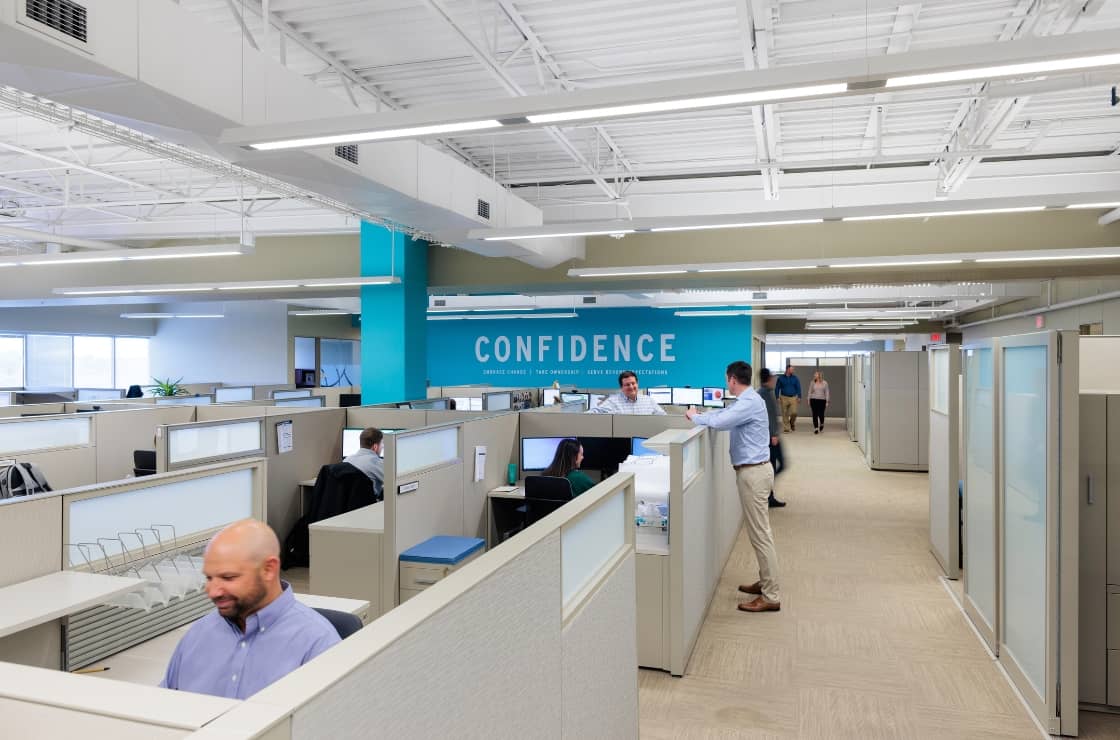Cash Flow Management for Financial Stability in Independent Medical Practices

Managing cash flow is just as critical to a practice's success as providing top-notch medical care. Juggling delayed insurance reimbursements, mounting operational costs, and patients struggling to cover their deductibles can jeopardize the long-term success of your practice. It’s important to have a solid understanding of cash flow and the strategies you can implement to keep your practice thriving.
Understanding Cash Flow in Independent Medical Practices
Cash flow is the lifeblood of any business, and medical practices are no exception. It represents the movement of money in and out of your practice, including revenue from patient visits, insurance reimbursements, and expenses such as rent, salaries, and supplies. When you have positive cash flow, it means your revenue is greater than your expenditures; negative cash flow, on the other hand, means your outflow exceeds your inflow.
Common Cash Flow Challenges
Independent medical practices face unique cash flow challenges that can impact their financial stability. Some of the most common challenges include:
1. Healthcare Collection Practices
Collecting payments from patients and insurance companies can be a time-consuming and challenging process.
2. Patients' Payment Responsibilities and Deductibles
With the rise of high-deductible health plans, patients are responsible for a larger portion of their medical bills, which can lead to delayed or missed payments.
3. Increase in Self-Pay Patients
More patients are opting for self-pay options, which can create additional billing and collection challenges for practices.
4. Delayed Insurance Reimbursements
Insurance companies can take weeks or even months to process and pay claims, leading to cash flow disruptions.
5. Higher Operational Costs
Running a medical practice involves significant expenses, such as rent, utilities, and medical supplies, which can strain cash flow.
Effective Strategies for Managing Cash Flow
To overcome these challenges and maintain a healthy cash flow, consider implementing the following strategies:
1. Implement Effective Billing and Coding Practices
Ensure your billing and coding processes are accurate and efficient to minimize payment delays and reduce the risk of denied claims.
2. Monitor Accounts Receivable
Regularly review your accounts receivable to identify and address any outstanding balances or payment delays.
3. Offer Payment Plans with an Upfront Deposit
Consider offering payment plans to patients who may have difficulty paying their bills in full but request an upfront deposit to ensure some immediate cash flow.
4. Optimize Inventory Management
Carefully monitor and manage your inventory to avoid overstocking and tying up cash in unnecessary supplies.
5. Improve Patient Communication
Educate patients about their payment responsibilities and offer clear, transparent billing statements to reduce confusion and delays in payment.
6. Negotiate with Suppliers and Vendors
Regularly review your contracts with suppliers and vendors to negotiate better terms or discounts, helping to reduce operational costs.
7. Hire a Financial Consultant
A financial consultant can provide valuable insights and personalized strategies to improve your practice’s cash flow management.
Leveraging Technology
Technology can be a powerful tool for streamlining cash flow management in your medical practice. Some key technologies to consider include:
- Integrated Practice Management Systems: These systems can help you manage patient scheduling, billing, and other administrative tasks more efficiently.
- Online Payment Portals: Offering online payment options make it easier for patients to pay their bills and help you collect payments faster.
- Automated Billing Systems: Automated billing systems help you submit claims more quickly and accurately, reducing the risk of delays or denials.
Managing cash flow is an ongoing process that requires careful planning, monitoring, and adaptation. By understanding the unique cash flow challenges faced by independent medical practices and implementing effective strategies and technologies, you can ensure the financial stability and success of your practice. Remember, a healthy cash flow is essential not only for meeting your financial obligations but also for investing in the growth and improvement of your practice over time.
Better Manage Your Cash Flow with Lutz
If you need guidance or support in managing your practice's cash flow, Lutz is here to help. Our team of experts can provide tailored healthcare accounting solutions, from accounting procedures assessments to strategic planning, to help you optimize your financial performance. Please contact us to learn more.

- Achiever, Significance, Focus, Discipline, Competition
Katie Blycker
Katie Blycker, Client Advisory Services Manager, began her career in 2016. She has developed extensive expertise in outsourced accounting and healthcare consulting, building on her early experience in tax.
Focusing on providing comprehensive financial services to independent medical practices, Katie excels in benchmarking analysis, provider compensation plans, and financial statement review. Katie's passion lies in simplifying complex financial data for her clients, interpreting key metrics, and conveying crucial information. Her disciplined approach and drive for achievement enable her to deliver high-quality, tailored solutions that meet each client's unique needs.
Katie lives in Omaha, NE, with her husband Bryce and daughter Blair. Outside the office, you will find her spending time with her family, golfing, and reading.
Recent News & Insights
Benefits of Temporary Staffing
Financial Planning Advice for Recent College Grads
2024’s Hot Stocks Have Cooled Fast + 4.23.25
Do You Need a Family Office? 7 Aspects to Consider



.jpg?width=300&height=175&name=Mega%20Menu%20Image%20(1).jpg)
%20(1).jpg?width=300&height=175&name=Mega%20Menu%20Image%20(2)%20(1).jpg)
%20(1)-Mar-08-2024-09-27-14-7268-PM.jpg?width=300&height=175&name=Untitled%20design%20(6)%20(1)-Mar-08-2024-09-27-14-7268-PM.jpg)

%20(1)-Mar-08-2024-09-11-30-0067-PM.jpg?width=300&height=175&name=Untitled%20design%20(3)%20(1)-Mar-08-2024-09-11-30-0067-PM.jpg)
%20(1).jpg?width=300&height=175&name=Mega%20Menu%20Image%20(3)%20(1).jpg)
%20(1).jpg?width=300&height=175&name=Mega%20Menu%20Image%20(4)%20(1).jpg)
%20(1).jpg?width=300&height=175&name=Mega%20Menu%20Image%20(5)%20(1).jpg)
-Mar-08-2024-08-50-35-9527-PM.png?width=300&height=175&name=Untitled%20design%20(1)-Mar-08-2024-08-50-35-9527-PM.png)


.jpg)




